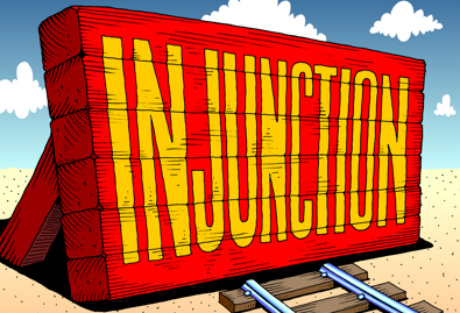Commercial Insights

There’s been a significant amount of scholarly debate recently, across the opinion pages of the Guardian and the Telegraph and all the bastions of the British press, as to whether the injunctions around celebrities’ private lives should be allowed to be upheld in a digital age where freedom of information is so important.
Privacy in this digital age, is impossible, it is widely agreed. Indeed, Facebook’s Mark Zuckerberg explicitly stated that “privacy is dead.” This, however, has become the backdrop to a battle between personal and press freedoms that simply will not go away.
The story that began the latest battle of the injunction was one originally published in the Sun on Sunday, before a legal dispute meant that they had to review the entire situation. When we wrote about this story at the time, it seemed no more than another injunction and another celebrity court case that would soon fade from the public domain.
But when the Daily Mail, Daily Mirror, Daily Telegraph and The Times all decided to stand behind the Sun on Sunday and criticize the workings of what they felt was an out of date judicial requirement, the case erupted into a full scale press against courts battle which was plastered all over the news.
When the judgement came last week regarding the fact that the injunction was going to be upheld, all of those papers ran stories the next day to criticize the judges who had made the decision, as well as politicians who the papers felt had not stood up for the freedom of the press.
The terminology is interesting – whilst judges term this kind of ruling an ‘injunction’, the press refer to them much more negatively as ‘gagging orders’, suggesting that they are part of a ‘Big Brother’ society regarding what they can and can’t say. Newspapers believe injunctions completely undermine the freedom of the press.
But the ultimate crux on which this battle resides, is what the public value more – the protection of the right to privacy, or a freedom of press which allows anything to be published. And are the two mutually exclusive?
The Telegraph said in it’s spread on the whole fiasco that it actually didn’t care about who PJS was or what he’d done. What it stated was wrong was that the inherent desire to keep information about himself hidden has thus piqued public interest and raised questions “about the responsibilities of judges and politicians, and about the free speech on which all British liberties depend.”
The Telegraph called for a rethink of the law that enshrined the privacy injunction in the first place, indicting judges for taking the “power to gag the media” – the whole battle summed up in one paragraph.
The Times concurred that they did not care for the intimate details of what happened in the actual affair, but only that they found it to be a concept which was "deeply troubling in a free British society."
They stated three reasons - firstly quoting the Savile case as an example of how fame can corrupt and how that power needs to be kept in check; secondly using practicality to discern that the internet and social media rendered these kind of judgements completely senseless; and thirdly that the injunction hinders the freedom of everyone else, citing the example that an ordinary person could face court for simply tweeting what they know about who was involved.
Unsuprisingly, The Sun were more lewd with their descriptions, branding the judges as 'out of touch old duffers' who were from an 'analogue age.' They viewed the decision as a direct attack on them and their readers, stating that the judges had a "predictably contemptuous snobbery towards popular papers and our millions of readers."
Whether that is true or not remains to be seen, but the support of many of the more traditionally middle class newspapers suggests that something is amiss in the relationship between what the people want to read and what the judges feel that the public should see.
Therefore, the only question remains as to whether we trust judges or editors more to decide what they feel to be in the general public's best interest. And whilst judges are widely respected as arbiters of justice and wisdom, the press are demanding an answer to whether they serve the many, or simply the few?
This is doubtless not the last time this will come up, and it will not go away until privacy gives way completely - the age of digital has rendered that the only solution. A day will come where it is futile to continue these kind of laws, and many would argue that that day has already passed. But until these judges, the 'arbiters of justice', decide that is the case, the debate will roll on.
Academy tools to help you get a job
-

Free Watson Glaser Practice Test
Understand the test format, compare your performance with others, and boost your critical thinking skills.
